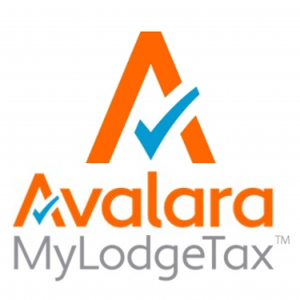Everything you ever wanted to know about lodging tax (but were afraid to ask!)
- Jul 11, 2016 | MyLodgeTax

The world of lodging taxes can be murky and intimidating. Many owners of vacation rental properties are simply unaware that they need to charge & collect lodging taxes from their guests – and then file lodging tax returns & remit tax payments. Some may have heard about lodging taxes but don’t really know what they are and aren’t sure they apply to them. Others have gotten the cold wake-up call in the form of a nasty-gram from a tax jurisdiction informing them that they owe back taxes – potentially with fines and interest on uncollected lodging taxes. Urp!
We’ve seen and handled the spectrum. From the innocent inquiry – “Um, can you please tell me if I need to be charging lodging tax?” – to the panicky “HELP!! I just got a letter from the county saying I owe thousands in back taxes!” It’s easy to understand why people are so confused by lodging taxes – and it’s why we’re here to help. Here are a few things to note about lodging tax.
It’s called different things but means the same thing
Lodging tax, occupancy tax, hotel tax, stay tax – they all refer to a type of sales tax on short-term rental revenues. This is just the first layer of complexity but perhaps the easiest to get past. It’s important to understand how the tax jurisdictions governing your property’s location define “short-term,” but typically, any rental of 30 consecutive days or less is taxable. Most jurisdictions exempt rentals over 30 days from taxes. Most – it’s not always the case, which leads to the point that…
Vacation rental tax rules and regulations differ by jurisdiction
There are literally thousands of tax jurisdictions across the U.S. and there’s a good chance that your property is governed by at least three of them – the city, state, and county where your property resides. Each has their own tax authority which means – you guessed it – three separate lodging tax rates (and three separate tax returns). And possibly differing rules on applying those individual rates. You must add up each of these rates to determine the total lodging tax rate to charge your guests. Still following? Good, because…
Short-term rental marketplaces collect taxes on your behalf sometimes
If you are renting your home on a vacation rental marketplace such as Airbnb, HomeAway, or VRBO, you might assume lodging taxes are handled for you. While it’s true there are some states in which Airbnb and HomeAway collect and file taxes on your behalf. This service cannot be relied upon for complete tax compliance. Generally speaking, you should never assume any vacation rental service is going to manage your state and local taxes for you. Always now where you are required to collect and then check with the service to see where they will collect on your behalf.
Airbnb keeps a list of the locations where they collect occupancy tax on your behalf. Typically, you can expect to be responsible for collecting all local lodging taxes and some state lodging taxes.
Rental tax due dates can also vary by jurisdiction
When you collect sales & lodging taxes from your guests, you’re required to file them in a timely manner as well. The timeline in which these returns are due can vary but is often monthly or quarterly. But your city taxes could be due monthly, your county taxes due quarterly, and state taxes due annually. It’s a challenge to even the most disciplined bookkeeper to sort out and keep track of how much is due to which tax agency and by when. Then comes the fun part of actually filling out a return, cutting the check and mailing hoping that you’ve got it all right and that you’re going to make the filing deadline! The key consideration driving the need to comply with lodging taxes is…
You’re vacation rental is a business
In a nutshell, if you’re renting out a room or an entire home, you’re effectively operating a hotel business in the eyes of the tax authorities and must collect lodging tax from your renters. This means that you need to first register with the tax authorities and obtain any required business licenses or tax collection permits in order to rent your property legally and charge tax. Again, the requirements and application process for obtaining these licenses vary by jurisdiction.
All this can require a lot to effort simply to remember and keep organized – to say nothing of actually filling out and filing paperwork and paying taxes. If you don’t want to deal with understanding all of the complexity of your lodging tax requirements, and the burden of filing tax returns and remitting tax payments, let us automate your lodging taxes so you can instead focus on booking your property and keeping guests happy.










